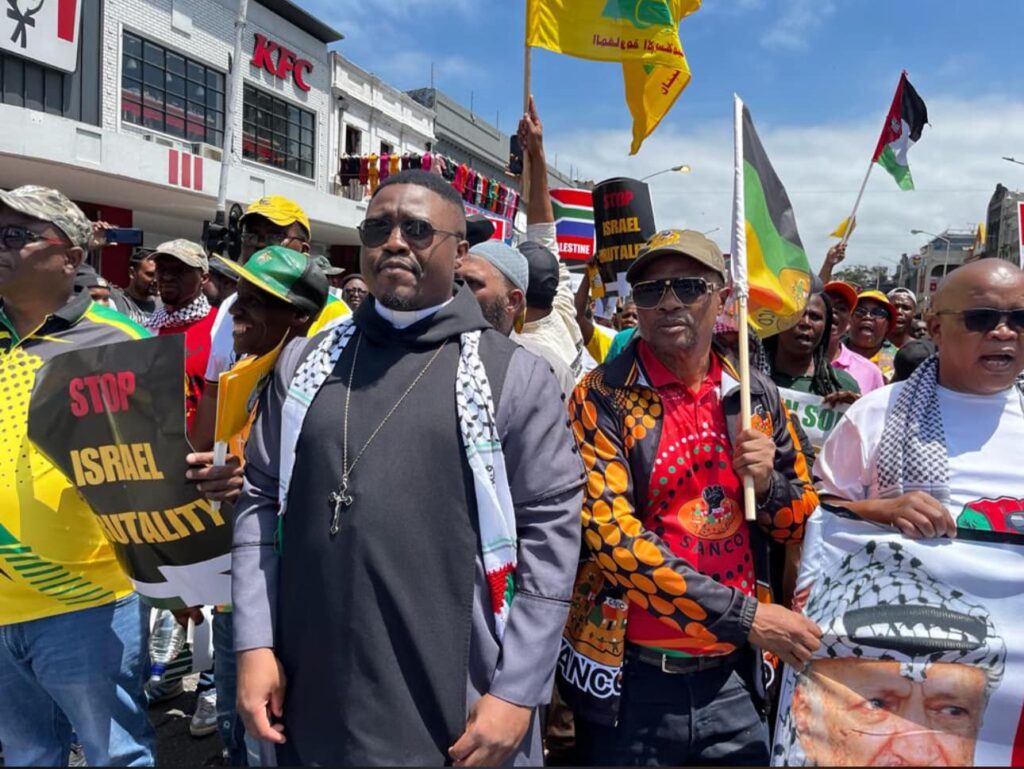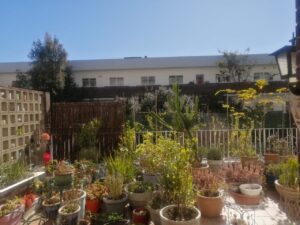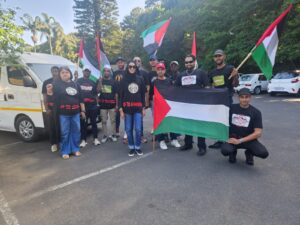
A Christian priest whose Palestinian flag was confiscated by security at Moses Mabhida Stadium, says he is shocked that this could still happen in a democratic South Africa, writes Nabeelah Shaikh.
A Durban reverend says he was treated like a ‘thug and a criminal’ by police officers who harassed him over his support for Palestine when he attended a Confederation of African Football match at the Moses Mabhida Stadium on November 18.
Reverend Nthuthuko Nkosi is now demanding an apology from officials for the “horrible” way he was treated.
Nkosi said he was stopped by security members and asked to remove his keffiyeh. He was also carrying a Palestinian flag at the time and alleges that security officers at the stadium confiscated his flag. Humiliated by the experience, Nthutuko says he is still in shock that an incident of this nature had occurred in a democratic South Africa.
“While entering the suite at the stadium, I was told to remove my keffiyeh and not to wave the Palestinian flag when five security guards approached me. They forced me to hand over my flag and said I could collect it later from the security office. It was embarrassing and humiliating as people watched this encounter unfolding,” said Nkosi.
Nkosi said he obliged and then approached the security office to collect his flag when the match was over.
“When I entered the office, there were several policemen who approached me and asked me why I brought the flag to a soccer match. I responded by telling him that this was a FIFA-affiliated match, and that Palestine was recognised by FIFA,” said Nkosi.
He said the officials then told him that it was inappropriate for him to have the flag with him at the stadium and they believed it would incite violence.
“I was told that they would not engage in any further discussions with me, and this matter is now closed. I was asked to take my flag and leave the stadium. Quite distraught, I then left the stadium,” said Nkosi.
Nkosi who spent many years in Palestine and Israel said he has never experienced this kind of discrimination, even there.
“I was in Israel wearing t-shirts with messages of solidarity for Palestine and I wore keffiyehs’ all the time. I have never been stopped by the IDF and questioned about this, even in occupied territories. What I experienced on my home soil was horrible. I felt belittled. We have a democracy that we fought for, yet we still have incidents like this taking place,” said Nkosi.
Resilience
He said it was shocking that at a CAF game in South Africa – in a stadium named after a struggle icon – he could not carry a flag that symbolises resilience, pain, and the struggle that the people of Palestine are being subjected to.
“The Palestinian flag reminds us that we were once occupied by the apartheid regime, that we did not have freedom of movement and we need to offer our unwavering support to the Palestinian plight. We cannot forget what has happened to us,” said Nkosi.
He said during his time serving as a reverend in Palestine he was given the name Abu Asad, and there, he experienced firsthand what Israeli forces had been doing to innocent civilians.
“I have experienced an elderly woman having her house bulldozed by the Israeli occupation. I have witnessed how Palestinians in the West Bank have to carry ID’s, the way we as South Africans had to carry a dompass. I have seen people at checkpoints being treated like animals. I have seen settlers walking into the Al-Aqsa Mosque and desecrating it at the time of prayer on a Friday. So, I know and understand very well what the Palestinian people are going through. I have even seen Christians being disallowed to go and celebrate Christmas in Bethlehem because of the checkpoints and the Israeli occupation. Israel is a genocide state, and we should call it what it is,” said Nkosi.
Nkosi is demanding a public apology from the Confédération Africaine de Football, the local security company at the stadium that confiscated his flag during the game, as well as from the police.
“Law Enforcement is the custodian of protecting citizen’s rights and freedom. However, I believe in this instance my freedom was taken from me to publicly support an oppressed country that is currently living through an atrocious genocide being carried out by the illegitimate state of Israel,” said Nkosi.


